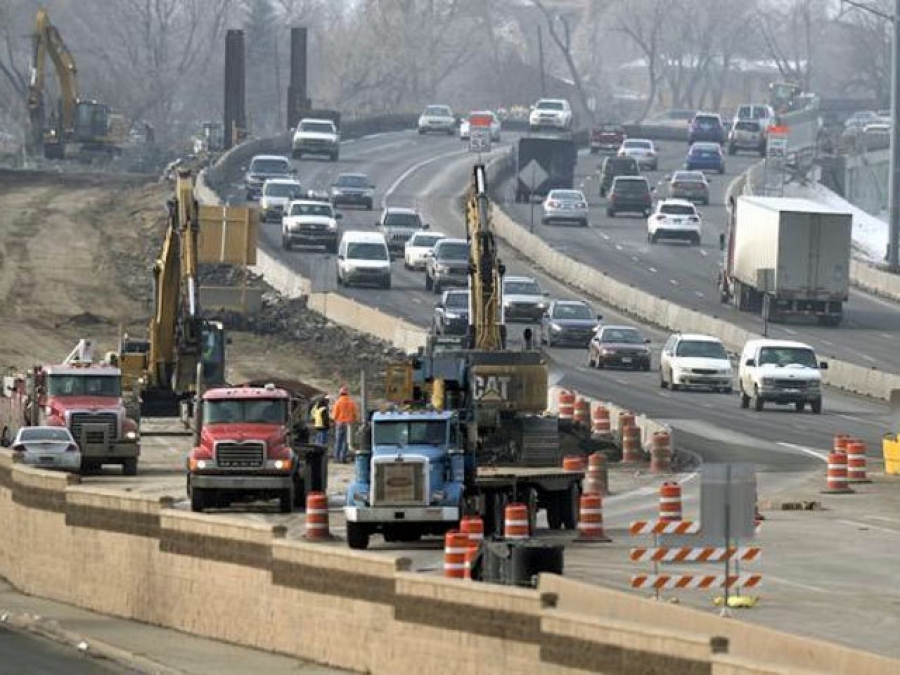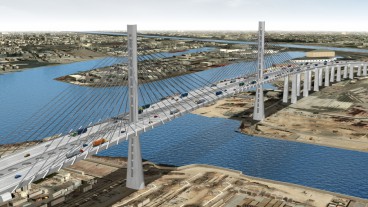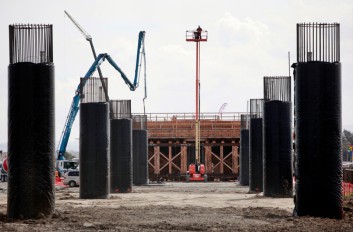
The Colorado Department of Transportation finalized the state’s first public-private partnership contract last week. The contract allows private consortium Plenary Roads Denver to complete the second phase of the U.S. 36 Managed Lanes project. In addition to expanding and approving the existing highway between Denver and Boulder, Plenary Roads Denver will also be required to maintain the road for 50 years.
The $120 million project will add a “managed” lane for buses, high occupancy vehicles, and drivers willing to pay a toll. Vehicles with one or two occupants will have to pay a $4-$6 toll which is a similar amount to the tolls on nearby I-25. The change will be implemented by 2017. The project will also create a bike lane and improve the highway’s other existing lanes. As part of the partnership, CDOT will pay Plenary roads $675,000 each year to maintain the 30-mile stretch of road as well as $458,000 each year to provide snow and ice removal. The contract also gives CDOT the authority to penalize Plenary Roads Denver for failing to maintain or remove snow and ice from the road.
Using a public-private partnership for the second phase of the Managed Lanes project has been controversial in the state of Colorado and many critics have voiced their opinions. A petition to restrict CDOT’s power to sign a public-private partnership contract received over 20,000 signatures. Much of the criticism stems from the lack of transparency in the process so far and the fear that tolls will be significantly increased in the proposal. CDOT's High Performance Transportation Enterprise Board Commissioner Heather Barry acknowledged a lack of transparency in the process. She also said the board did not have the power to withhold the project’s contract. An 80-page summary of the contract was released in mid-February, but the complete 600-page document has not been made public due to the protection of proprietary elements. CDOT representatives feel that there is a lot of misinformation circulating about the project and that they need to do a better job of educating the public about public-private partnerships. CDOT spokesman Amy Ford stated that a P3 contract shifts the project risks to the private sector and allows the project to be completed in a timely manner. Without the contract, phase two would not be able to begin for another 20 years.
Phase one of the project will be completed by spring 2015. The anticipated schedule for phase 2 released by CDOT projects the project to be open in 2016. HDR will provide the engineering design for phase two and Ames Construction and Granite Construction will construct the project.
Sources: Denver Channel, Daily Journal
Want to read more like this story?

Pennsylvania To Use P3 Contracts To Fix Aging Bridges
Jan, 24, 2014 | NewsPennsylvania Department of Transportation plans to replace 500 bridges in the state starting in 2015...

Rocheport Bridge replacement project
Sep, 24, 2021 | NewsIn late September, Missouri Department of Transportation announced that the first phase of the I-70...

African Infrastructure Shortages Responsible for Lack of Growth
Apr, 01, 2014 | NewsAs Africa continues to develop, one of the main challenges it still faces, is its shortage of comple...

Keller returns to Egypt for the second phase of PVD project
Dec, 10, 2019 | NewsFollowing the installation of more than 82.5 million meters of PVDs (Prefabricated Vertical Drains)...

Miami’s Brickell Center Tower Nearly Half Sold
Aug, 11, 2014 | NewsDespite only being half completed, the Brickell Center Tower in Miami is already the city’s most ant...

Νew pedestrian and cycling bridge over the River Kennet
Dec, 02, 2024 | NewsThe fifth phase for the Reading's South Reading Bus Rapid Transit (BRT) scheme took place on Novemb...

More than 100 infrastructure projects are approved in the Philippines
Mar, 09, 2023 | NewsThe economic planning chief announced that the administration of President Ferdinand Marcos Jr. has...

Gerald Desmond Bridge Replacement Receives TIFIA Loan
May, 29, 2014 | NewsThe $1.2 billion Gerald Desmond Bridge replacement project recently got underway in Long Beach, Cali...

BART Expansion Project One Year Ahead of Schedule
Mar, 11, 2014 | NewsThe Bay Area Rapid Transit (BART) system expansion project is a full year ahead of schedule due to a...
Trending

Spectacular interchanges around the world

New Release - STAAD.Pro 2024 - 2

ADINA 2025 for Structural WorkSuite

ADINA 2025 New Release!

Drilled Shafts Project on Gilbert Road Bridge

Powerful earthquake shakes central Philippines, dozens killed

Partial collapse of apartment building in NYC due to blast loading

